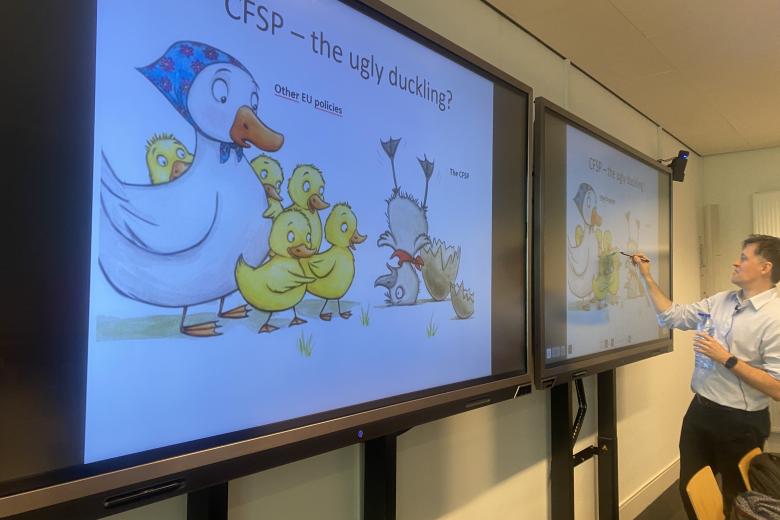Valorisation wins at UM
Two researchers who earned their PhD from Maastricht University in 2017 were awarded a prize for the quality of their valorisation chapter in their dissertation. Since a few years, PhD candidates at the UM are required to write a chapter about the way their research can be translated into societal or economic value. Last year, Dr. Hans Schouwenburg and Dr. David Barata wrote this chapter so well that they were awarded the Valorisation Prize 2017 at the University Dinner on 11 April.
In total the faculty deans nominated ten candidates. In 2017, 343 candidates earned their PhD at the UM. The jury established that the quality of the nominations increases each year. The jury unanimously decided to award two valorisation prizes this year.
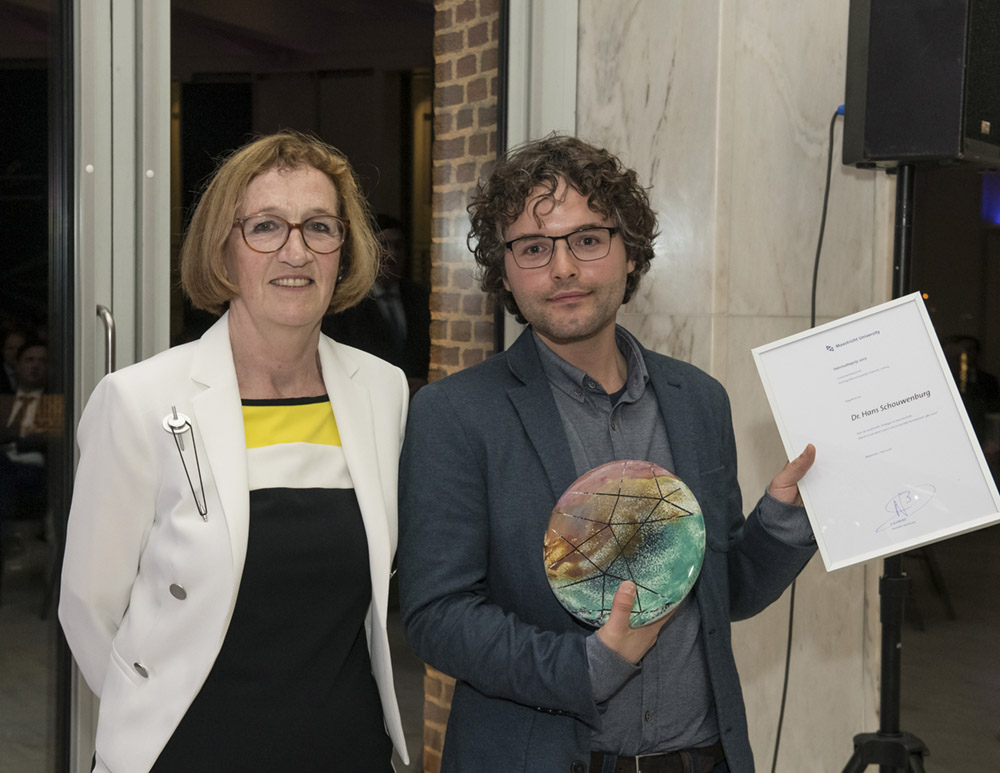
Hans Schouwenburg
Dr. Hans Schouwenburg wrote the dissertation 'Strategies to Save the Earth: Nature Conservation Experts and Sustainable Development, 1980-2000' at the Faculty of Arts and Social Sciences.
Politicians, businesses and citizens, everyone finds sustainability important. But what is it exactly? This dissertation studies the history of the concept of sustainability, the experts who shaped the idea, and the interests that played a role behind the scenes. It shows that sustainability has been redefined over and over again throughout the years. Because of all those differences and often contradictory opinions the concept is vague, sometimes attracts hypocrisy, and in practice often leads to disagreements. At the same time, sustainability, because it is so vague, enables the formation of broad coalitions in the international debate about environmental problems and development cooperation. Exactly there lies the power of the notion.
Currently, Hans Schouwenburg is preparing a popular publication on sustainability derived from his PhD thesis. He now aims to garner the attention generated by his work through a continued study of the relationship between sustainability and agriculture, in particular the changing dynamics between conservationists and farmers over time. The jury hails Hans Schouwenburg as a shining example of the social significance inherent in the humanities.
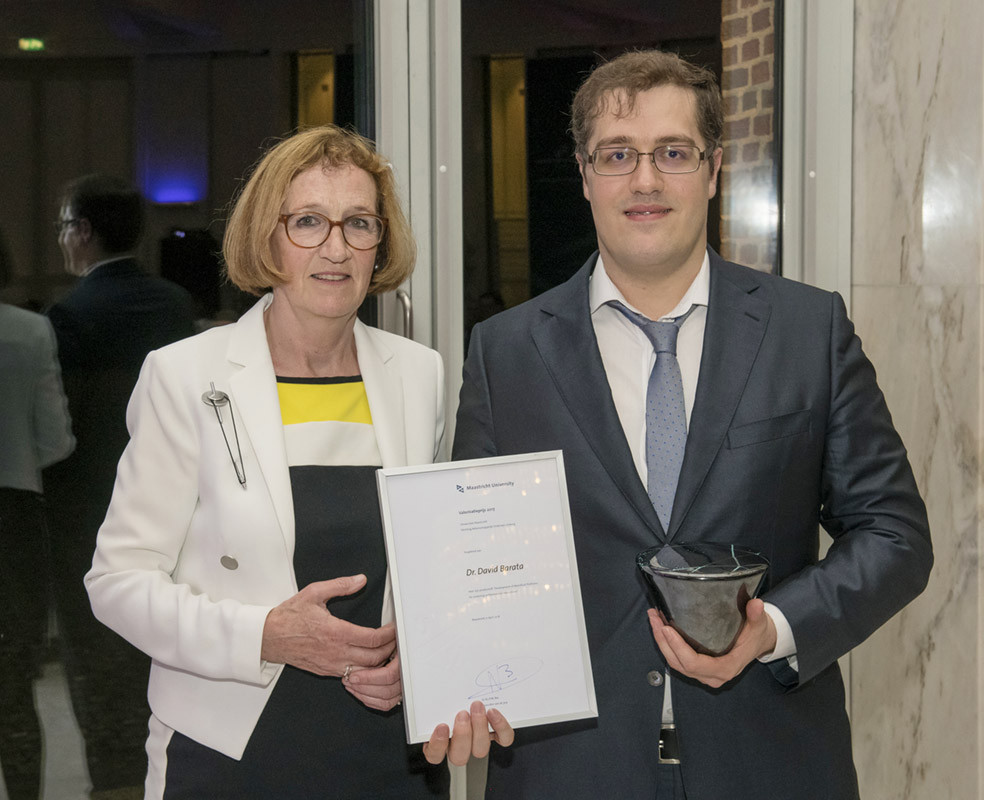
David Barata
David Barata wrote the dissertation ‘Development of Microfluid Platforms for screening cellbiomaterial interactions’ at the Faculty of Health, Medicine and Life Sciences.
Barata combines biology and materials science (particularly micro- and nanotechnology) to improve the regenerative possibilities of damaged or diseased tissue. For this purpose he developed techniques (platforms) based on microfluids. In particular, a novel platform incorporating polylactic acid as the main component went through an extensive valorisation process including a patent submission, as described in the Valorisation chapter. Independent of the inherent value of the developed technology, the systematic and thorough market analysis one can find in this case study is an important example of academic valorisation. The jury thinks the valorisation chapter even qualifies as a draft business plan.
Also read
-
DigiMach places Meuse-Rhine Euroregion at the heart of industrial digitalisation
DigiMach (Digital Machining) is a new cross-border project uniting Belgium, Germany, and the Netherlands around a common goal: accelerating the digitalisation of the machining industry in the Meuse-Rhine Euroregion.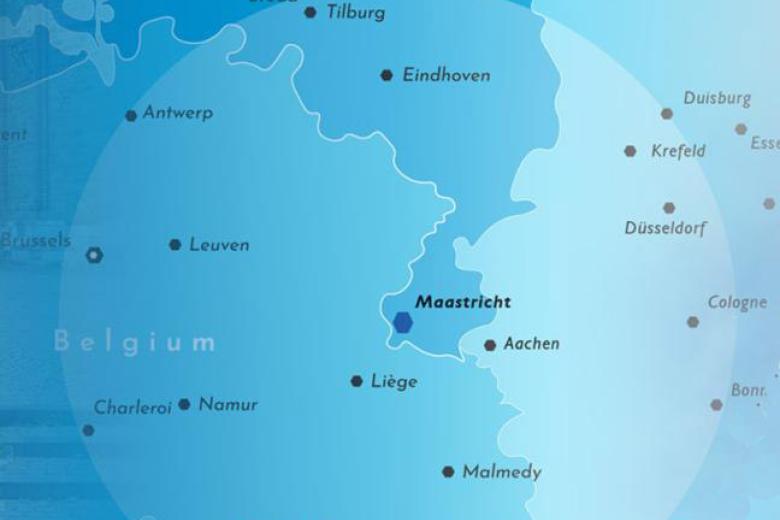
-
Globalisation & Law Network seminar with Áine Ryall
On 24 November 2025, the Globalisation & Law Network, together with the Institute for Globalisation and International Regulation (IGIR) held the seminar with Professor Áine Ryall.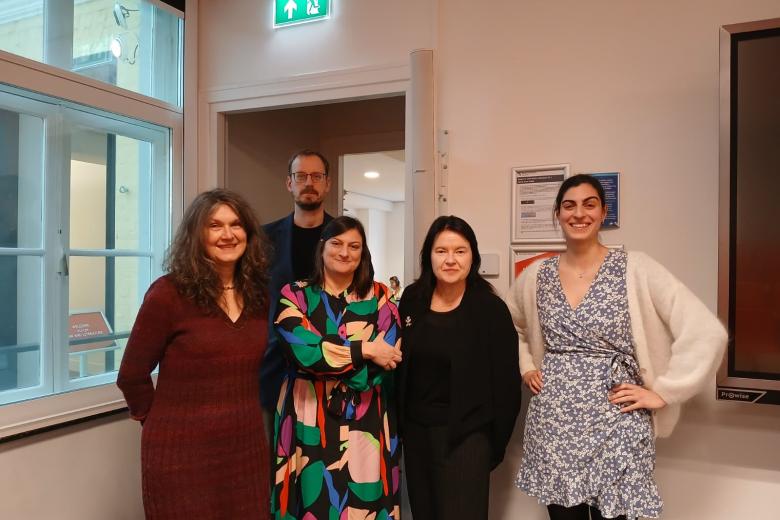
-
Guest Lecture: Lóránt Havas explores current challenges in the EU’s CFSP
Lóránt Havas delivered a guest lecture on the EU’s evolving CFSP, discussing key legal developments, institutional challenges, and new defence instruments.